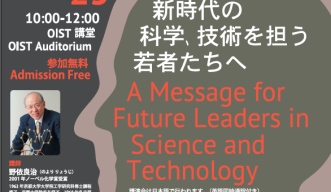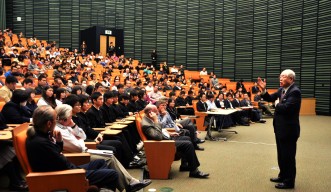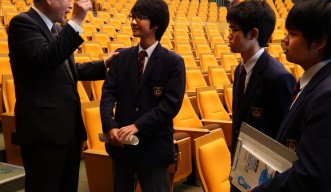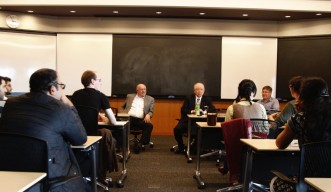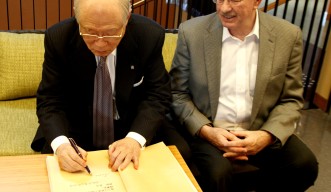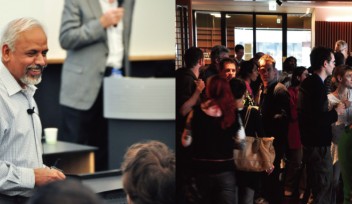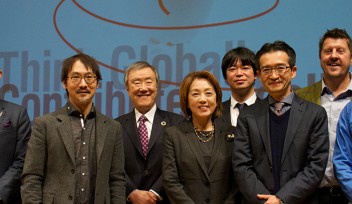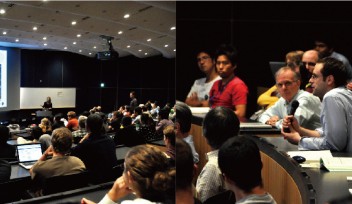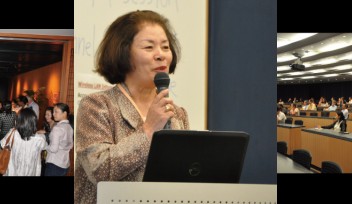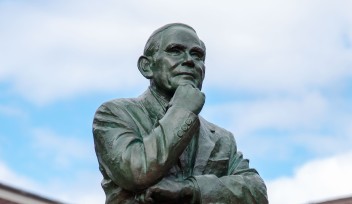Passing the Baton
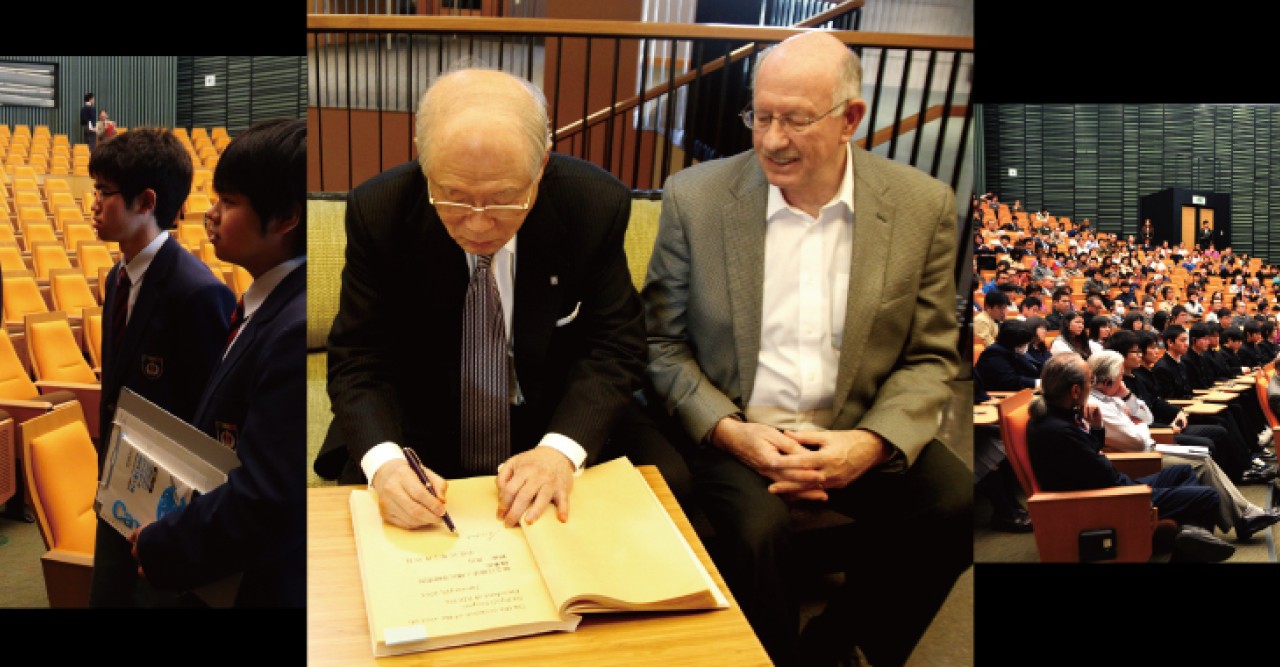
On Friday, January 25, 2013, local Okinawan residents, high school students, teachers and government officials sat amongst OIST employees and students to enjoy a moving lecture by Dr. Ryōji Noyori, Nobel Laureate and President of RIKEN. Noyori has proved to be a skilled chemist not only with carbon compounds and catalysts, but also with words – for over an hour and an half he held the attention of this diverse audience with an engaging concoction of personal anecdote, humor, science, art, and philosophy. The aim of the colloquium, the sixth in a series OIST has hosted since February 2012, was to give “a message to the future leaders in science and technology.”
“Don’t listen to the older generation too much. Do things your own way,” 74-year-old Noyori told the young members of the audience. “It’s time we pass the baton to you.” In a Q&A session with OIST graduate students, he repeated this sentiment: “OIST provides its students with freedoms unavailable elsewhere in Japan. You should take advantage of this by taking risks and thinking as individuals. Scientific innovation is about being rebellious.”
In 2001 Noyori won the Nobel Prize in Chemistry for his “work on chirally catalyzed hydrogenation reactions" – basic research that later blossomed into important techniques used in the synthesis of antibiotics, anti-inflammatory drugs and heart medicines. The son of a chemical engineer who was well acquainted with Dr. Hideki Yukawa, the first Japanese Nobel Laureate, Noyori became interested in science at a very young age. In 1951 his father brought him to the Toray Industry Conference, where he first learned about the “amazing things that can be made through chemical reactions.” From this point on, he felt it was his lot in life to help bring the post World War II Japan out of economic turmoil by creating useful products through chemistry. After over 400 publications and over 160 patents as of 2001 and countless awards, there is no doubt Dr. Noyori has fulfilled his childhood dream.
In his lecture Noyori emphasized the need for future scientists to conduct research that is international, socially and economically responsible, and interdisciplinary – much like that of environment being cultivated at OIST, he noted. His opinions on research in the 21st century also paralleled the content of his talk. Along with briefly discussing his research career, Noyori referred to the ideas of philosophers like Martin Heidegger and Socrates and artists such as Paul Gauguin and Pablo Picasso. “Many Japanese Nobel Laureates were well-versed in the humanities and the sciences,” said Noyori. “The relationship between science and art is very important.”
“Many great Japanese scientists have also worked overseas at some point,” he added. Noyori himself worked as post-doc in E.J. Corey’s lab at Harvard University in Boston, USA. During this time he met K. Barry Sharpless, with whom he shared the Nobel in 2001. Noyori also emphasized the need for science and technology that can solve the world’s water, energy, agriculture, biodiversity and poverty issues and “contribute to protecting the basic right to exist by all peoples” – the note on which he concluded his lecture.
“OIST is different from a standard Japanese university,” Noyori later remarked in a private interview after the talk. “OIST must continue to appreciate and embrace traditional Japanese culture, but I hope it will act as a catalyst to change Japanese education towards a system that is more international and interdisciplinary.”
For press enquiries:
Press Inquiry Form
